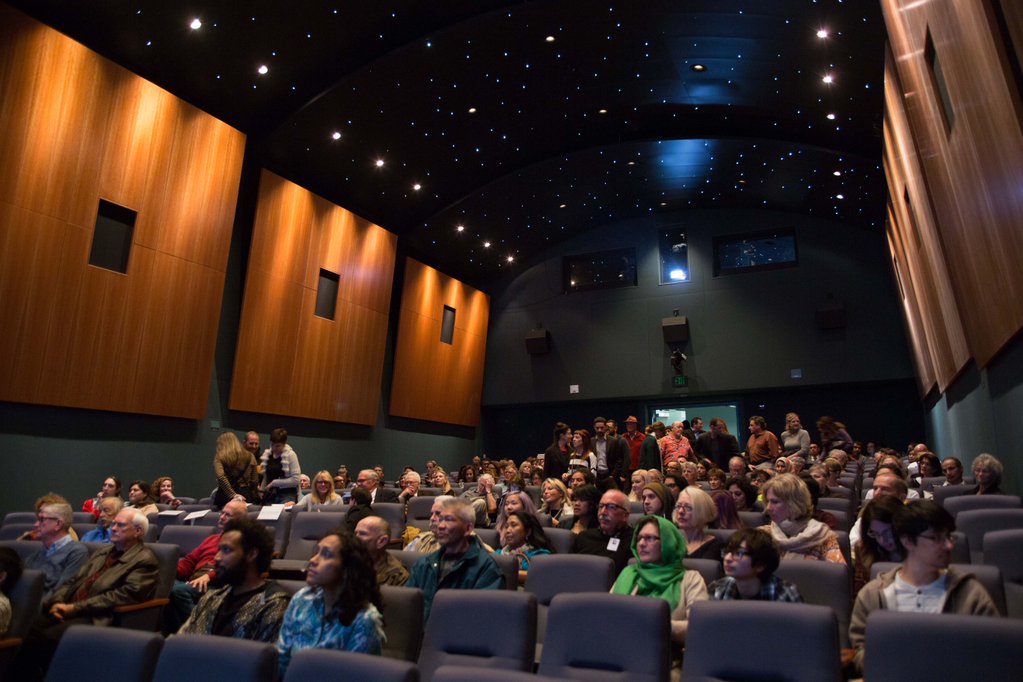 BPhoto Credit: Museum of Photographic Arts
BPhoto Credit: Museum of Photographic Arts
The Human Rights Watch Film Festival kicks off its sixth year and four days of films at the Museum of Photographic Arts on Jan. 21.
The festival creates a forum for what it calls “courageous individuals on both sides of the lens to empower audiences with the knowledge that personal commitment can make a difference. The film festival brings to life human rights abuses through storytelling in a way that challenges each individual to empathize and demand justice for all people.”
The festival kicks off at 7 p.m. Thursday, with the documentary “I Am Sun Mu” from Adam Sjöberg. The film focuses on an artist who works under the pseudonym Sun Mu, which means “no boundaries” and is a direct criticism of the repressive regime of Kim Jong-un.
Lyric R. Cabral and David Felix Sutcliffe’s “(T)ERROR” screens at 7 p.m. Friday, Jan. 22. The filmmakers boast that this “is the first documentary to place filmmakers on the ground during an active FBI counterterrorism sting operation. Through the perspective of ‘Shariff,’ a 63-year-old black revolutionary turned informant, viewers get an unfettered glimpse of the government’s counterterrorism tactics and the murky justifications behind them.”
Saturday, Jan. 23, begins with a special, non-film presentation called “A Right to the Image.” The program notes describe it as: “In our hyper-mediatized world, victims of human rights violations are often depicted in terms of bodies rather than individuals. Visual representations of human suffering and injustice are not only aesthetic choices; they are also political and ethical choices.”
Saturday night, the festival brings the documentary “The Black Panthers: Vanguard of the Revolution” back to San Diego. The film had sold out screenings at the Digital Gym Cinema last year.
The film begins with archive footage and a news report stating: “Relations between police and Negroes throughout the country are getting worse.”
Producer Laurens Grant never imagined that the same issues would be playing out 50 years later as the film unspools at film festivals.
“Here we are editing scenes about the problems of the black community and police officers or police brutality, and the tensions, and then coming out of the edit room and seeing similar news stories on my Twitter feed and the Internet and on the television news,” Grant said.
This only goes to prove the importance of her documentary playing at this year’s Human Rights Watch Film Festival. Issues of race, injustice and revolution continue to play out in American culture. The film interviews members of the Black Panther Party (who have had decades to think about the rise and fall of their organization), historians, as well as some of the white police officers who interacted with the Black Panthers. In addition to the interviews, there is a lot of archival footage and a lot of still photos. It captures the revolutionary spirit of the 1960s and reminds us of a powerful moment in black history. Grant will be on hand for a Q&A following the film.
The story and legacy of Ambassador Richard Holbrooke, whose career spans 50 years of American foreign policy from Vietnam to Afghanistan is at the heart of the documentary, “The Diplomat,” screening at 3 p.m. Sunday, Jan. 24. David Holbrooke’s documentary is a son’s portrait of his father and takes you behind the scenes of high stakes diplomacy.
The festival concludes at 7 p.m. Sunday with the most unusual film in the line up, Paul Cowan and Amer Shomali’s animated documentary “The Wanted 18.” Not only is stop motion animation of talking cows a rarity in documentaries, but so too is the true story that provides the basis for the film. The film looks to how the purchase of 18 cows by a Palestinian collective farm led to them being declared “a threat to the national security of the state of Israel.”
The Human Rights Watch Film Festival (sponsored by the non-profit organization Human Rights Watch) runs Jan. 21-24 at the Museum of Photographic Arts in Balboa Park. As in years past, it is a festival designed to enlighten and to encourage people to ask questions and take action.
